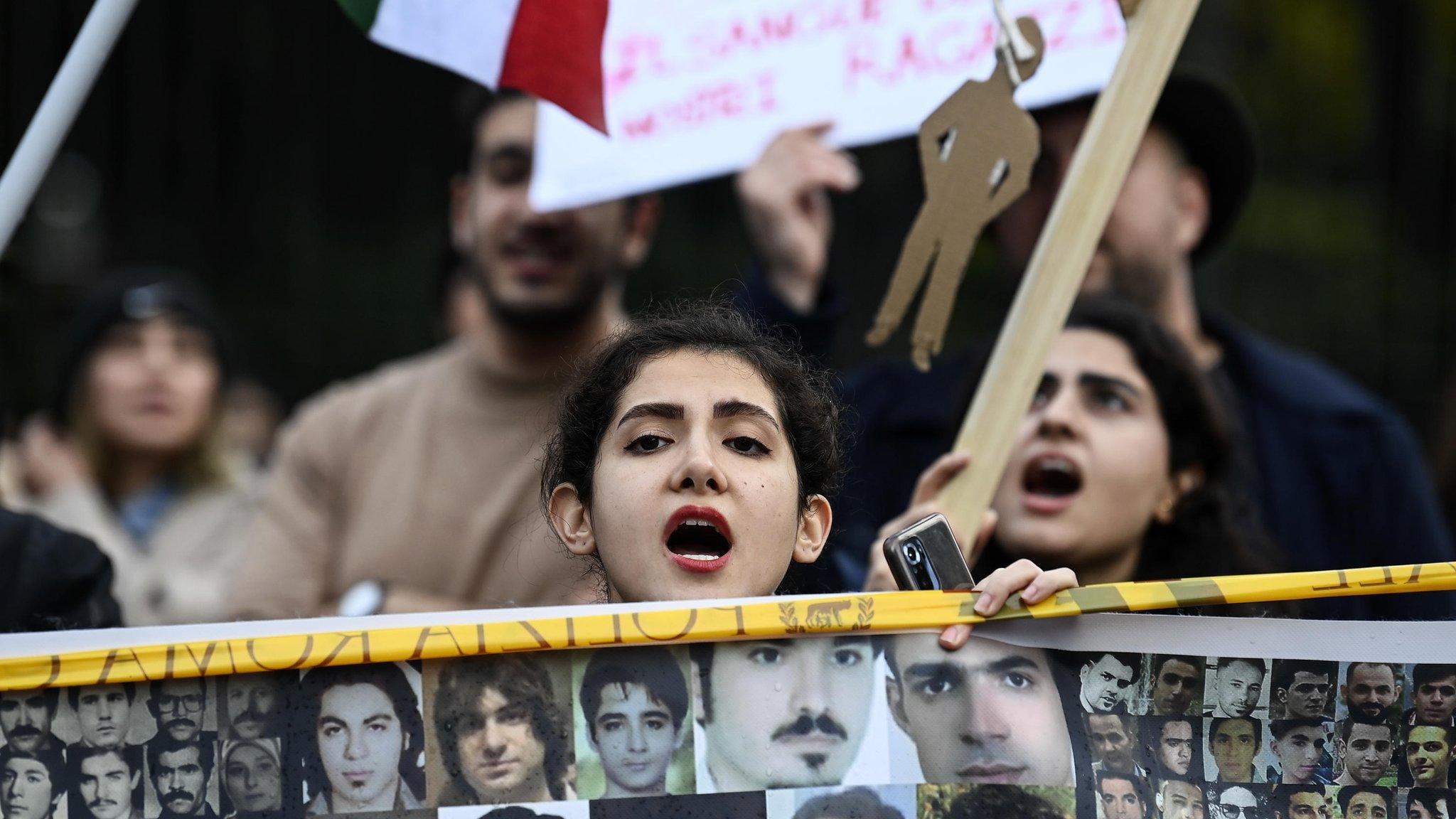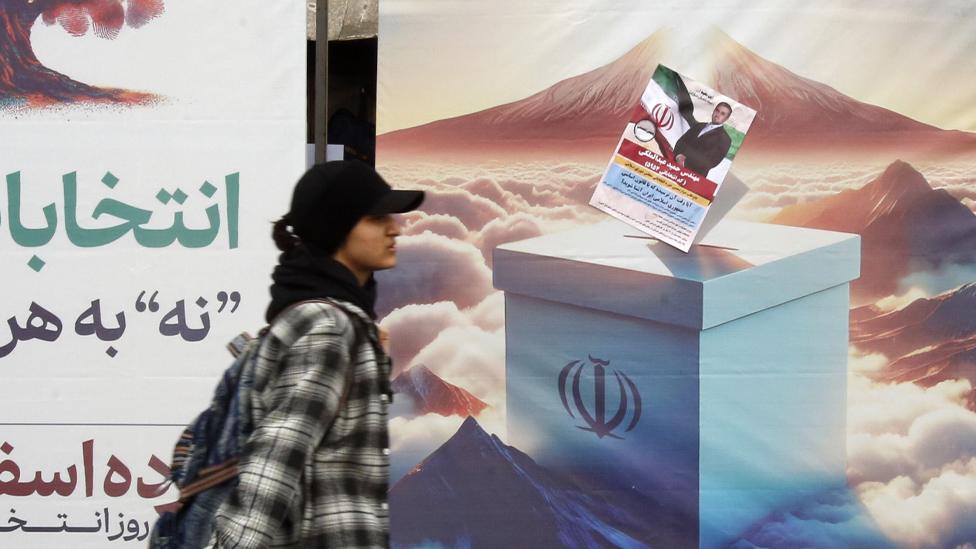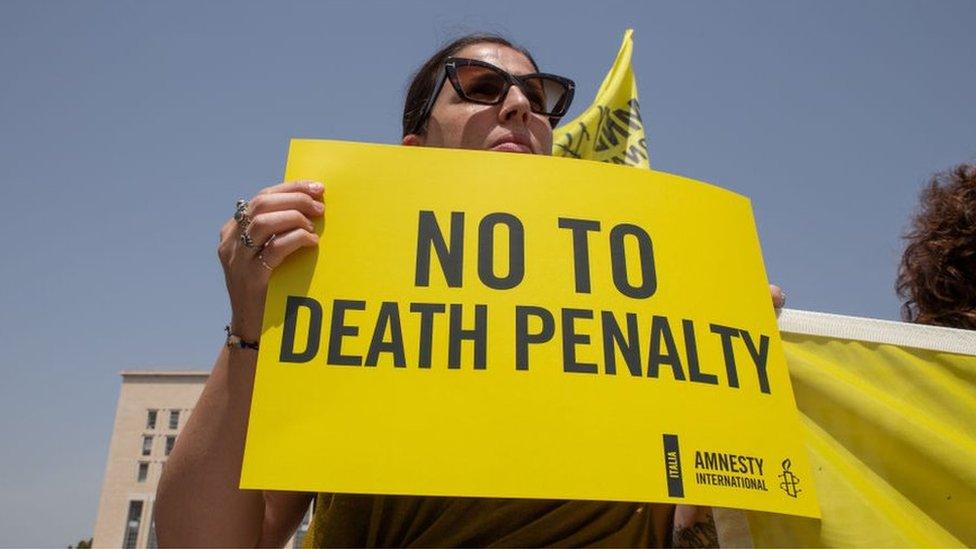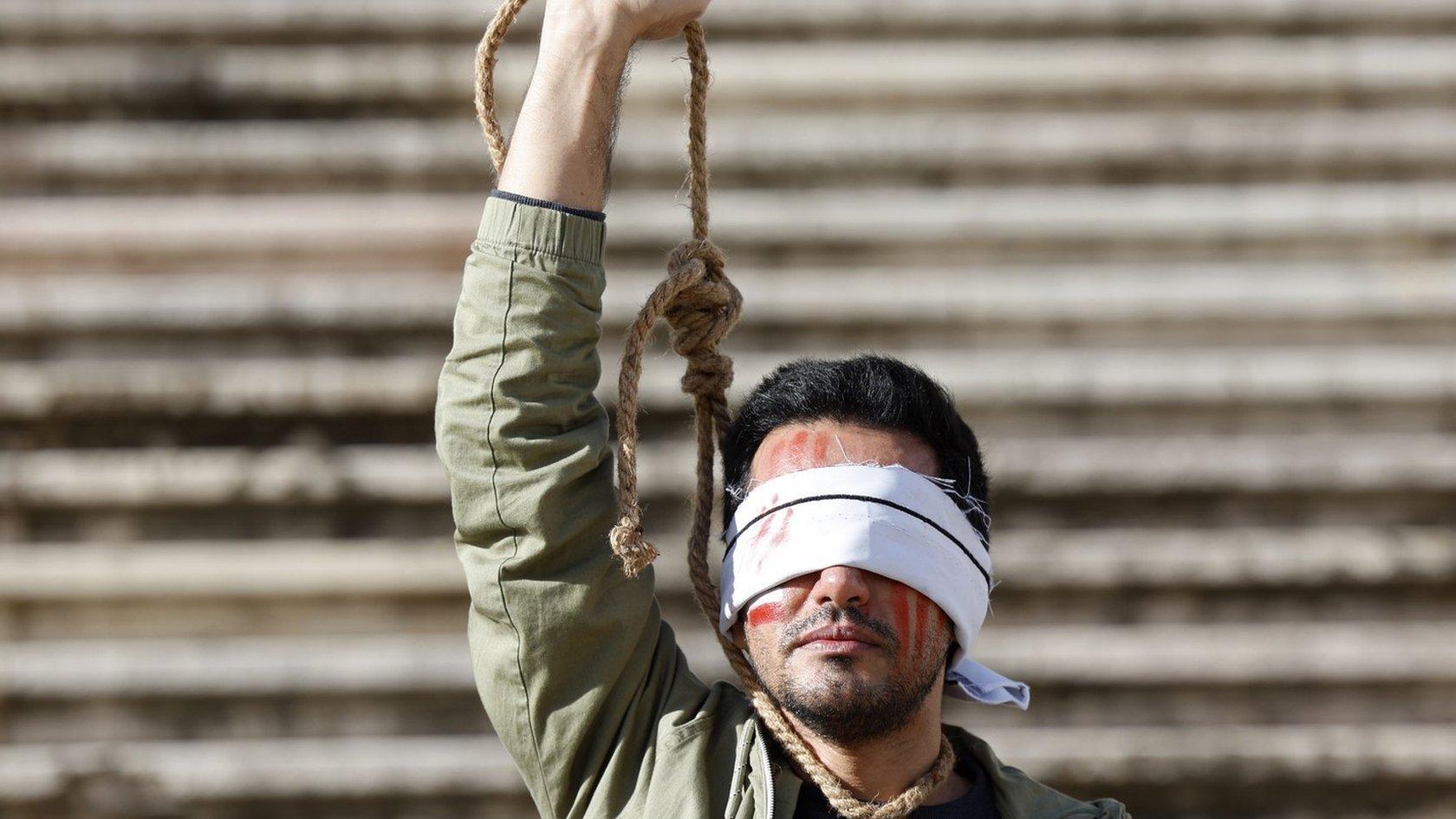Iran executions rise sharply to 834 last year 'to instil societal fear', report says
- Published

People protest outside the Iranian embassy in Rome on 10 December 2022
Executions in Iran have surged for a second year running to 834, campaign groups say.
Most were undocumented hangings, Norway-based Iran Human Rights (IHR) and France's Together Against the Death Penalty (ECPM) said. Official sources noted 125 executions.
The Iranian authorities were weaponising the death penalty to "instil societal fear", they said.
It follows nationwide protests led by women and girls.
The protests were sparked by the death of Kurdish-Iranian Mahsa Amini in police custody in 2022 and led to a violent crackdown by Iranian authorities.
While at least eight protesters were executed last year, the vast majority of executions were reportedly based on drug-related charges (56%) and murder charges (34%).
The report said Iranian authorities used the death penalty as "a tool of political repression", identifying a correlation between the number of executions and political events.
Iran Human Rights Director Mahmood Amiry-Moghaddam said that "instilling societal fear is the regime's only way to hold on to power".
Dr Sanam Vakil from Chatham House think tank told the BBC there "certainly appears to be a correlation between protests, harsh sentencing and executions as part of the Iranian government's efforts of curbing further wide scale dissent".
Most of the cases relied on "little evidence and zero due process", she added.
The number of executions carried out in 2023 was about 40% up on the previous year's reported figure of 582 and the second highest since records began 16 years ago.
They included at least 471 people executed on drug-related charges, more than 18 times higher than 2020's figure.
The report criticised the United Nations Office on Drugs and Crime (UNODC) for "an alarming silence" on the issue.
A spokeswoman for the UNODC told the BBC it opposes the use of the death penalty and called on member states to suspend executions "with a view to abolishing the death penalty, without delay".
Baluch minorities, which account for approximately 2-6% of Iran's population, were identified as being "grossly overrepresented" amongst the number of executions, with 138 drug-related executions, according to the findings.
Other executions identified in the report were based on charges in relation to "moharebeh and corruption on earth" (39), rape (20), unknown (19), blasphemy (2) and adultery (1).
At least 22 women were also executed last year, the highest number since 2013.
Last January, responding to the nationwide anti-government protests across Iran, the United Nations High Commissioner for Human Rights Volker Türk said using "criminal procedures to punish people for exercising their basic rights" amounted "to state sanctioned killing", external.
Related topics
- Published29 February 2024

- Published25 January 2024

- Published13 April 2023
